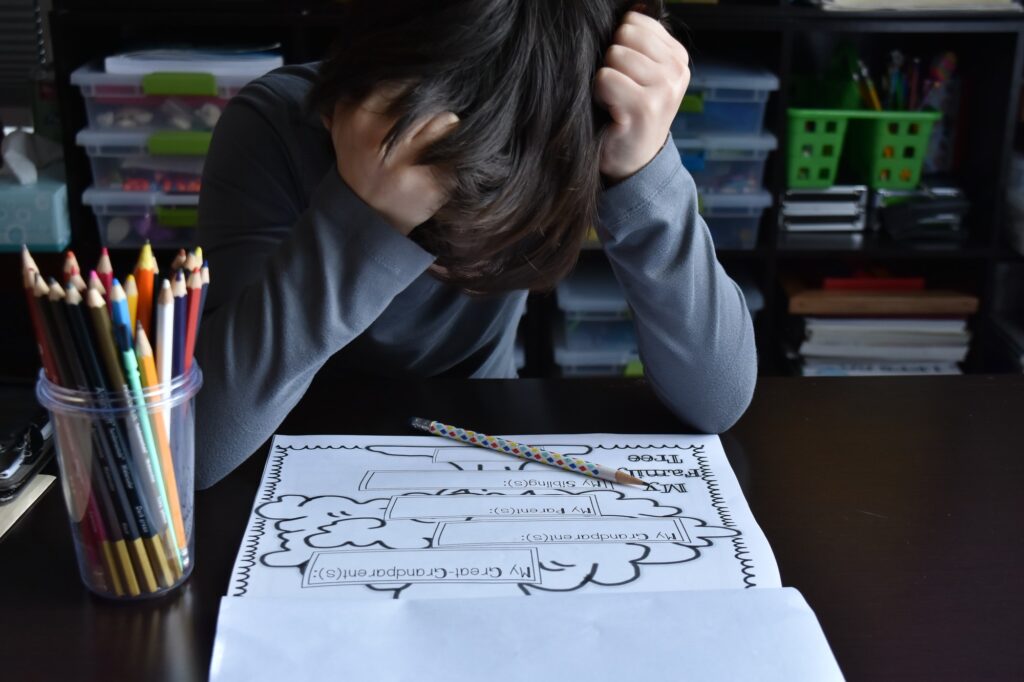Attention Deficit Hyperactive Disorder (ADHD), is a neurodevelopmental disorder that affects how a person thinks and processes emotions.
ADHD can be and is often diagnosed in childhood. Usually, ADHD symptoms are detected in schools where the most obvious signs of ADHD, such as behavioral problems, anger issues and distractability, inattention and behavior control problems, are evident.
There are many treatment options, from prescription medication to behavioral intervention. ADHD can be treated with medication alone in some cases.
But The National Institute of Mental Health recommends that other psycho therapeutic interventions be considered.

A parent survey conducted in 2016 found that 6 of 10 ADHD children had some other mental, emotional or behavioral disorder.
Children with ADHD may also be affected by depression, autism spectrum disorder, or Tourette Syndrome.
Some parts might be smaller than usual, at least temporarily. ADHD children might have a slower maturation rate in the frontal lobe which controls impulses, organization, focus, and other functions.
Partly because many people have mental, emotional or behavioral disorders. ADHD symptoms can be disguised by conditions such as anxiety, depression and autism. The true number of ADHD-afflicted adults in the United States is likely to be much greater than the official estimate of 4%.
ADHD can make it difficult to:
These symptoms can be mild or severe, and they can change over time. Symptoms can also cause problems in all aspects of your life, including at work, home, and school. ADHD management and treatment can be helpful to those in need and should be sought out as soon as possible. With ADHD Treatment many individuals with ADHD can identify their strengths and achieve success in their own lives.
ADHD patients often need medication as part of their ADHD Treatment and it can sometimes be difficult to make this choice.
After diagnosis your doctor will be able to make an informed decision about whether medication is the right option. You should ask your doctor if you require medication only during school hours or work, or both.
Examples of these medications include:
The most commonly prescribed type of ADHD Treatment drug are Central Nervous System (CNS) stimulants. These drugs increase brain chemicals, such as dopamine or Norepinephrine.
These stimulants can paradoxically calm ADHD sufferers while causing hyperactivity to decrease and improving attention span. This aids in increased concentration and helps you stay focused.
If stimulants aren’t working for your ADHD Treatment or you have side effects that are difficult to manage, your doctor might recommend a non-stimulant medication.
Non-stimulant medications increase Norepinephrine levels in the brain. Norepinephrine may be helpful in memory and attention.
Examples of non-stimulant treatments:
There are also a few other non-stimulant medications that aid in the suppression of ADHD symptoms. Although it is not known exactly how these medications work, there are some indications that they may help improve the functioning of certain chemicals in the brain responsible for attention and memory.
You can choose from a variety of psychotherapy options to help you manage your ADHD symptoms.
Psychotherapy, for example, can help you openly discuss your ADHD. ADHD can also lead to problems with your peers and authority figures. These relationships can be better managed with psychotherapy.
Psychotherapy can help you to understand your behavior patterns and make better choices for the future.
Behavior therapy teaches people how to manage their behavior and then helps them to change it.
Strategies will be developed to help you respond to specific situations. Many of these strategies involve direct feedback to help you learn the right behavior.
Cognitive Behavior Therapy (CBT), a short-term and goal-oriented form of psychotherapy, aims to change your negative thinking patterns and replace them by a new frame of mind about how you feel towards yourself.
CBT can be used to help ADHD sufferers with their “life impairments”, such as procrastination and time management. They may also be able to manage their irrational thoughts in time throughout their ADHD Treatment.
The Bottom Line
ADHD can cause disruption in people’s lives. However, there are many ways to manage it.
There are many types of treatment options, from prescription medication to the behavioral interventions mentioned above. These options should be discussed with your doctor in order to determine the best way to treat your ADHD symptoms.
A New Crossroad offers personalized medication assisted treatment programs for ADHD treatment. Contact our team of substance abuse and mental health treatment professionals today to schedule your consultation with us!

Visit Us
Open At
Copyright 2025 ©A New Crossroad